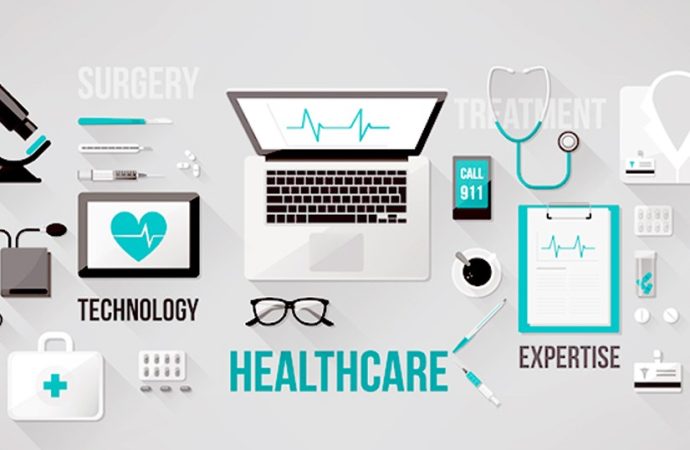In an era where digital transformation is reshaping industries, Big Data is emerging as a game-changer in public health. The integration of vast datasets, advanced analytics, and real-time processing capabilities is providing unprecedented insights into health trends, disease outbreaks, and resource allocation. This article delves into how Big Data is revolutionizing public health, offering a
In an era where digital transformation is reshaping industries, Big Data is emerging as a game-changer in public health. The integration of vast datasets, advanced analytics, and real-time processing capabilities is providing unprecedented insights into health trends, disease outbreaks, and resource allocation. This article delves into how Big Data is revolutionizing public health, offering a comprehensive look at its applications, benefits, and challenges.
Understanding Big Data in Public Health
Big Data refers to the enormous volumes of structured and unstructured data generated from various sources, including electronic health records (EHRs), social media, wearable devices, and more. In the context of public health, this data can be harnessed to monitor and improve population health outcomes. The key characteristics of Big Data—volume, velocity, variety, and veracity—enable public health professionals to analyze complex datasets and derive actionable insights.
Applications of Big Data in Public Health
- Disease Surveillance and Outbreak Prediction:
Big Data analytics can track and predict disease outbreaks by analyzing patterns in real-time data. For instance, during the COVID-19 pandemic, data from EHRs, social media, and mobile devices were used to monitor the spread of the virus, predict hotspots, and inform public health responses. Machine learning algorithms can identify anomalies in data that may indicate the emergence of new infectious diseases, allowing for quicker intervention. - Personalized Medicine:
The integration of genetic, environmental, and lifestyle data enables the development of personalized treatment plans. By analyzing large datasets, healthcare providers can identify which treatments are most effective for specific patient groups. This approach not only improves patient outcomes but also optimizes resource utilization. - Health Policy and Planning:
Big Data provides policymakers with the tools to make evidence-based decisions. By analyzing data on social determinants of health, such as income, education, and access to healthcare, policymakers can design targeted interventions to address health disparities. For example, data analytics can help identify regions with high rates of chronic diseases, enabling the allocation of resources to areas most in need. - Predictive Analytics:
Predictive analytics uses historical data to forecast future health trends. This can be particularly useful in managing chronic diseases, where early intervention can prevent complications. For example, predictive models can identify patients at high risk of developing diabetes, allowing for preventive measures to be implemented. - Resource Allocation:
Efficient resource allocation is critical in public health, especially during emergencies. Big Data analytics can optimize the distribution of medical supplies, personnel, and funding by identifying areas with the greatest need. This ensures that resources are used effectively, improving overall health outcomes.

Picture by: Yandex.com
Benefits of Big Data in Public Health
- Improved Health Outcomes:
By providing real-time insights, Big Data enables quicker and more accurate decision-making. This leads to improved patient outcomes, as healthcare providers can intervene early and tailor treatments to individual needs. - Cost Savings:
Big Data can help reduce healthcare costs by identifying inefficiencies and optimizing resource allocation. For instance, predictive analytics can reduce hospital readmissions by identifying patients at risk and implementing preventive measures. - Enhanced Disease Prevention:
With the ability to analyze vast datasets, public health officials can identify risk factors and implement preventive measures. This proactive approach can reduce the incidence of diseases and improve population health. - Greater Access to Healthcare:
Big Data can identify underserved populations and inform strategies to improve access to healthcare services. This ensures that all individuals, regardless of their socio-economic status, have access to the care they need.
Challenges and Considerations
While the potential of Big Data in public health is immense, several challenges must be addressed to fully realize its benefits:
- Data Privacy and Security:
The collection and analysis of health data raise significant privacy concerns. Ensuring that data is anonymized and securely stored is critical to maintaining public trust. Robust data governance frameworks and stringent security measures are essential to protect sensitive information. - Data Quality and Integration:
The accuracy and reliability of Big Data are paramount. Inconsistent data formats, missing information, and errors can compromise the quality of insights derived from analysis. Integrating data from diverse sources also presents technical challenges that must be addressed to ensure seamless data flow. - Ethical Considerations:
The use of Big Data in public health must be guided by ethical principles. This includes ensuring that data collection and analysis do not exacerbate health disparities or infringe on individual rights. Ethical guidelines and oversight mechanisms are necessary to navigate these complexities. - Skilled Workforce:
The effective use of Big Data requires a workforce with expertise in data science, analytics, and public health. Investing in education and training programs is essential to build the necessary skills and knowledge. - Interoperability:
Different healthcare systems and organizations often use disparate data formats and standards, making it challenging to integrate and analyze data cohesively. Promoting interoperability through standardized data formats and protocols is crucial for the effective use of Big Data in public health.
Conclusion
Big Data is transforming public health by providing deeper insights, enabling predictive analytics, and facilitating evidence-based decision-making. Its applications range from disease surveillance and personalized medicine to health policy planning and resource allocation. While challenges such as data privacy, quality, and ethical considerations must be addressed, the potential benefits of Big Data in improving health outcomes and reducing costs are undeniable.
As technology continues to evolve, the integration of Big Data into public health will likely become even more sophisticated, paving the way for a healthier and more equitable future. The collaboration between data scientists, healthcare providers, policymakers, and the public will be key to unlocking the full potential of Big Data in revolutionizing public health.
















